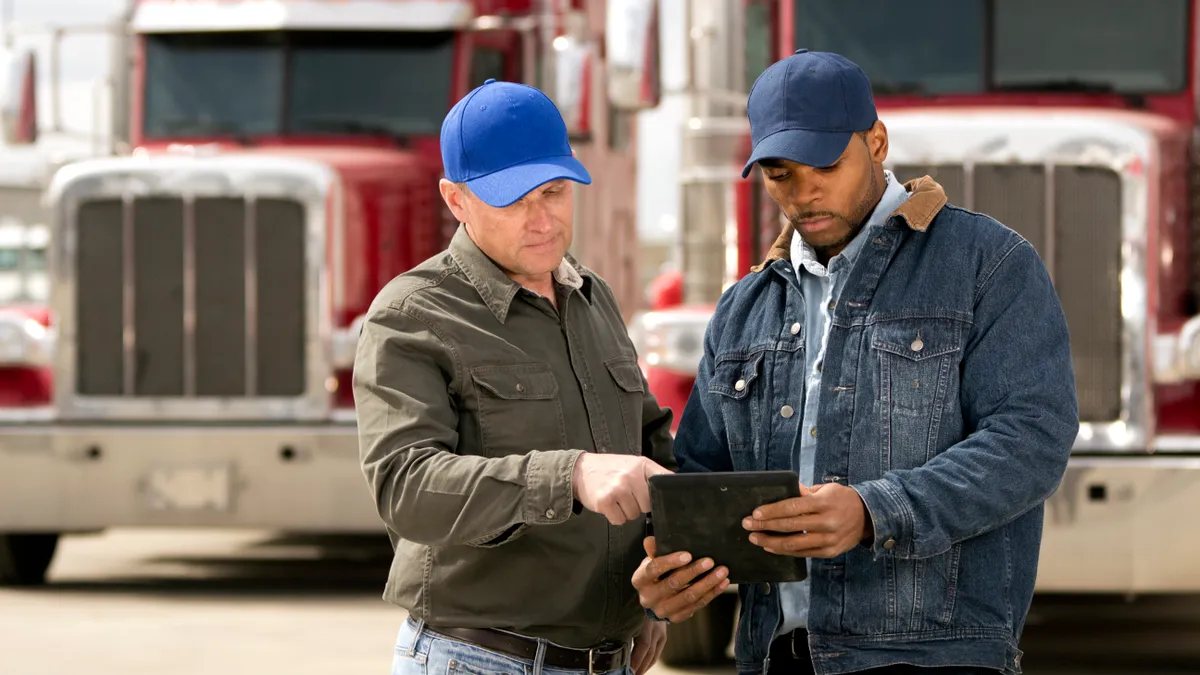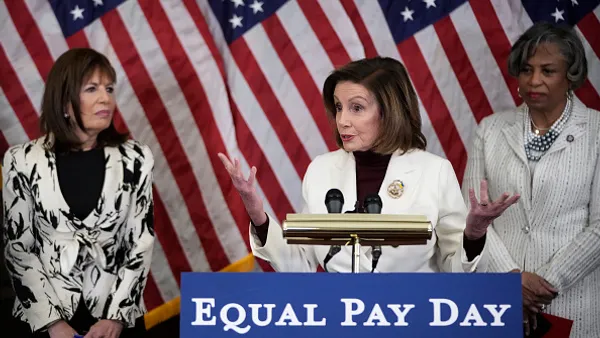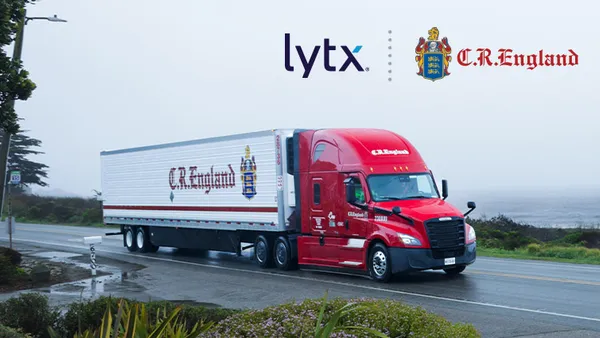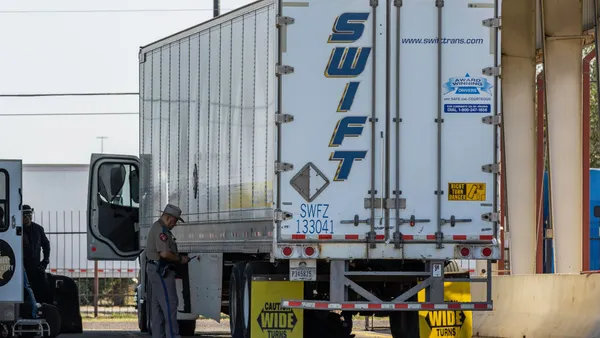This story is part of series on how C-suite roles are evolving in the trucking industry. Click here to learn about how the role of CEO has changed, and click here to read about the role of CFO.
Amanda Schuier, COO of Quality Transport, described herself as the ultimate floater. She can cover for almost anyone —from dispatch, to billing, to drug screening and more — while maintaining relationships with employees and customers.
"I can do everything but drive a truck or fix one," Schuier said.
Learning how to work in these different areas of trucking came out of necessity. After she'd been employed by Quality Transport for a year, the vice president of sales died suddenly. And in that same week, the dispatcher quit.
"I taught myself how to sell freight, quote rates and make a profit — all in a short amount of time," she said. "It was trial by fire, but I'm grateful I learned these responsibilities because it helped me become more involved with the operations side of the business."

COO of Garner Trucking Tim Chrulski can definitely drive a truck, though wrenching isn't his forte. He began his career as a truck driver for Garner in 1997. Then he climbed the career ladder at this company, from recruiting manager to sales executive then operations director. In 2020, he became COO of this family-owned business where Chrulski isn't part of the family.
Effective COOs come from an array of backgrounds. Al Hill, president of Hill Brothers Transportation, has hired multiple COOs during his career, and he looks for people who are highly adaptable, visionary, analytical and responsive. Those are qualities that have become even more integral during the pandemic.
"It takes someone who can predict demand, in either direction, and then make the most out of all resources available," Hill said. "Even when those resources remain fixed, it's important to find ways to increase capacity. Margins are thin enough already."
The pandemic-driven shift
The characteristics needed to be an effective COO haven't changed in the last five years, Hill said. But the economic circumstances have. Those include COVID-19, labor shortages and government requirements.
Hill Bros.' "COO" is General Manager Rob Sauer. He performs the duties a COO would, and he has focused on fostering partnerships with banks and lenders.
"Rob has also had to hire different types of leaders from what we've needed in the past," said Hill. "He's good at finding great talent and then letting them do what they do best."
"The COO must take the lead in creating a culture where you can hire, retain and have a place where people want to work and enjoy the camaraderie."

Al Hill
President of Hill Brothers Transportation
Now, a COO needs to look at the current variables and take swift and smart action, Hill said. The person in this position must right size operations during the pandemic, find drivers in untapped markets and adhere to legislation in the most cost-effective and efficient way possible.
"The COO must take the lead in creating a culture where you can hire, retain and have a place where people want to work and enjoy the camaraderie," Hill said.
Operational strategies have altered the role of COO, Chrulski said.
"Every business is living in an unfamiliar environment regardless of the product or service they provide," he said. "Learning how to lead effectively with a smaller and very competitive labor pool, flex schedules, Zoom meetings, and heightened health and human safety initiatives have challenged COOs to find better ways to do just about everything."

COVID-19 has changed and redefined today's supply chain, Chrulski said. Recruiting talent, procuring materials, shipping and receiving all present new challenges today versus two years ago. Americans aren't used to a dramatically stressed supply chain and this reality won't change soon.
"It will be up to the ingenuity of leaders and employees to work through these obstacles to keep America and the rest of the world moving," he said.
One of the current and more positive changes in the industry, said Chrulski, is how effective and efficient everyone has become at communicating. Honest and open conversations with our peers about what we can and can't do now take place.
"We've also developed creative ways to communicate with our drivers including using short videos and podcasts," Chrulski said.
Change with the times or fall behind
"Every job has to evolve more tomorrow than it has today, or you won't be in business long," said Chrulski.
Technology, current global events and people create the largest evolutions for leaders, he said. The ability to keep up the pace and the innovations in these categories continuously changes the role of COO.
Impacting businesses through new strategies, understanding and leveraging new technology while finding creative ways to mentor, nurture and retain employees will continue to challenge COOs, Chrulski said. In his opinion, these are good problems to have.












